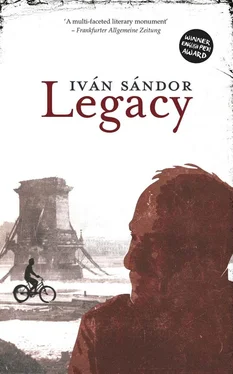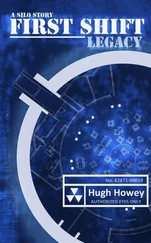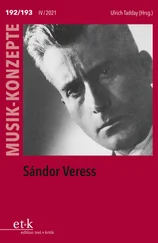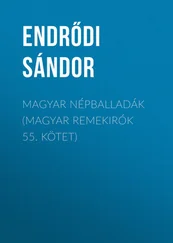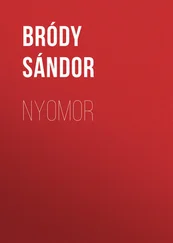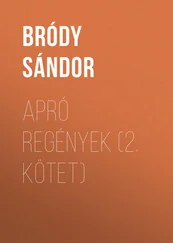Györgyi telephones. Her voice is unsure. I have a feeling she has found some pretext for calling off our meeting, but she does not consider it to be an appropriate pretext, and while she is holding the telephone receiver she is trying to dream up something else.
When I called her from Locarno I supposed that perhaps she was unable to separate herself from the written simulacrum of her or what she imagined about her mother’s history from the way I had written it nor me even from the fourteen-year-old boy.
When and where can we meet?
Whatever suits you, I say. It could be the Andrássy Hotel, the one you couldn’t make last time.
She gives me her own address as her preference.
Perhaps that was what had made her sound so hesitant, the thought of what I would have to say about that.

The gates to Miklós Radnóti Teachers’ Training Gymnasium can be seen from a second-floor window of the house on the corner of Abonyi Street and András Cházár Street. I attended the school there for eight years, when it was called the Jewish Gymnasium, but after the First Jewish Law of 1928 tightening the Numerus Clausus of 1920, which restricted the university entry of Jewish students, many, myself included, chose to call it the Abonyi Street Gymnasium.
Even now I can smell the sweaty reek of the sawdust-strewn gym hall as meanwhile I watch a Volkswagen Beetle driving where, in December 1944, Vera and I, hand in hand, stealthily slipped from Francia Road towards Mihály Munkácsy Street.
While I was drawing my various routes with the coloured fibre-tipped pens I felt the same sense of being at home at most points of my city, but I am not satisfied with that way of designating it — it lacks a sense of how a feeling of being at home and not being at home can go together.
In Györgyi’s hallway there is no man’s hat or slippers. It would not be right for me to go through things in her bathroom to check whether there were two toothbrushes on the shelf.
Györgyi is wearing jeans, a white polo-neck and a denim waistcoat. There are a lot of photographs on a chest of drawers. An oval table and six chairs, large and small sideboards, glass cabinet on the wall between two windows. I don’t ask if the furniture had been her mother’s; that would be superfluous. Dining-room suites like that aren’t produced any longer.
On one of the photographs are her mother and father standing in a garden with arms around one another’s waists. Her father is taller than the snap taken on the terrace by the lake in City Park: he is in a freshly ironed shirt, white trousers and white shoes, as if he were getting ready to play tennis. It seems she obtained two copies of the photograph of her mother and grandmother standing in the gateway of a house in winter coats marked with yellow stars. I can now see that her mother at the age of sixteen looks older than in the other photograph, which must have been taken at least five years later.
She brings my manuscript in from the other room, carefully closing the door behind her as if she were safeguarding there something of herself that she keeps fenced off from others; there is no entry there, not so much as a crack left in the door. That is presumably where she read my manuscript.
She would like to ask me about several things but not now. She feels it is not yet time for that, she says.
I can relate to that as I feel the same. With some things one has to wait for the right moment, I say. I can see she surrounds herself with photographs.
It is a tactless challenge, my voice is even a touch aggressive, but she smiles. She does not find it hard to say, in a voice that mimics my own aggressive tone, Yes, with photographs, but you knew that already. You could have been ready for that, given what you wrote about me.
What she was thinking of, she says after a slight pause, is that she was coming out of school. It was hard to bear passing in front of a block of memories on a daily basis. Every day she went to the tram stop along the road on which her mother and grandmother had been made to line up.
I can’t understand why she is laughing. It is not a hysterical laugh.
I ought to forget it, she says. The time has come for that, hasn’t it? There are times when it does not come to mind even if I am beside the stone block, but then what comes to mind is precisely the fact that it is no longer coming to mind. She ought to be relocated to a school in, say, Zugló. Yes, that would be more practical from the point of view of travelling if she were to teach in a nearby school. Of course, it might be, she repeats, that getting transferred would not alter anything, but it might be a solution all the same. What did I think?
It would be wrong for me to leave her an escape route.
My stern voice sounds like a duty policeman who has brought a perpetrator to the station. It startles even me that my voice is like that; it startles her, too. It fills her with satisfaction, but then what sort of solution is she thinking of? Why does she presume that there is a solution to find?
The shape of her face also seems to have altered, acquiring angularity. The chin juts forward; the eyes are drawn together. I had never noticed she was that tall. She has a shrill voice as well. She thinks I don’t know a solution is not possible — thinks I don’t understand that it is not possible either for her or for that man about whom she is writing?
I ask her what makes her think that I and the person in the manuscript — whom I call the seeker — are different? She tells me to stop playing games; I know she is a specialist in literature and history.
She asks what I would like to drink, vodka or cognac? That’s all there is, she says in a still-sharp tone.
Whatever you’re having.
She pours out two cognacs. She downs her own drink with an unpractised action, a few drops are left on her lip and roll down to her chin, but she does not take out a handkerchief. Seeing that I have spotted the drops on her chin she wipes them off with her wrist.
She calls me over to the window and points down at the street. Opposite is the edifice of the old gymnasium that I attended, as did her mother — the boys using the entrance in what was St Domonkos Street, 12the girls an entrance in Abonyi Street. She says this is the apartment my parents lived in. That is the first time she has used the expression my parents . When only she and her mother were left, when she was a girl, she would stand at the window waiting for her mother to get back home. Since then, whenever she looks down at the street it passes through her mind that her mother is crossing the road and carrying two shopping-bags. She had been out at the cemetery, she says, visiting her mother’s grave. She had also had her grand mother’s name engraved on the gravestone with the year of her birth, the fact that she had died a martyr’s death in Ravensbrück with, as she puts it, the customary text: ‘Her memory is preserved here’. She had also paid a visit to Luca’s grave, which is badly neglected. She had bought another bunch of flowers at the cemetery gates and taken that back to place on it.
I tell her that I wanted to have Bőzsi’s name added but had not decided on which memorial site to have it engraved at.
We talk about Bőzsi as if it were about a common acquaintance.
She is sipping a second glass of cognac. She takes off the waistcoat and laughs. Her chest heaves; her breasts are bigger than I had imagined.
She asks if I really did meet Vera later on, and did what I described really happen.
I thought that would engage her attention. The two cognacs had helped her to ask the question.
Let’s be clear about one thing: it’s a novel.
Читать дальше
